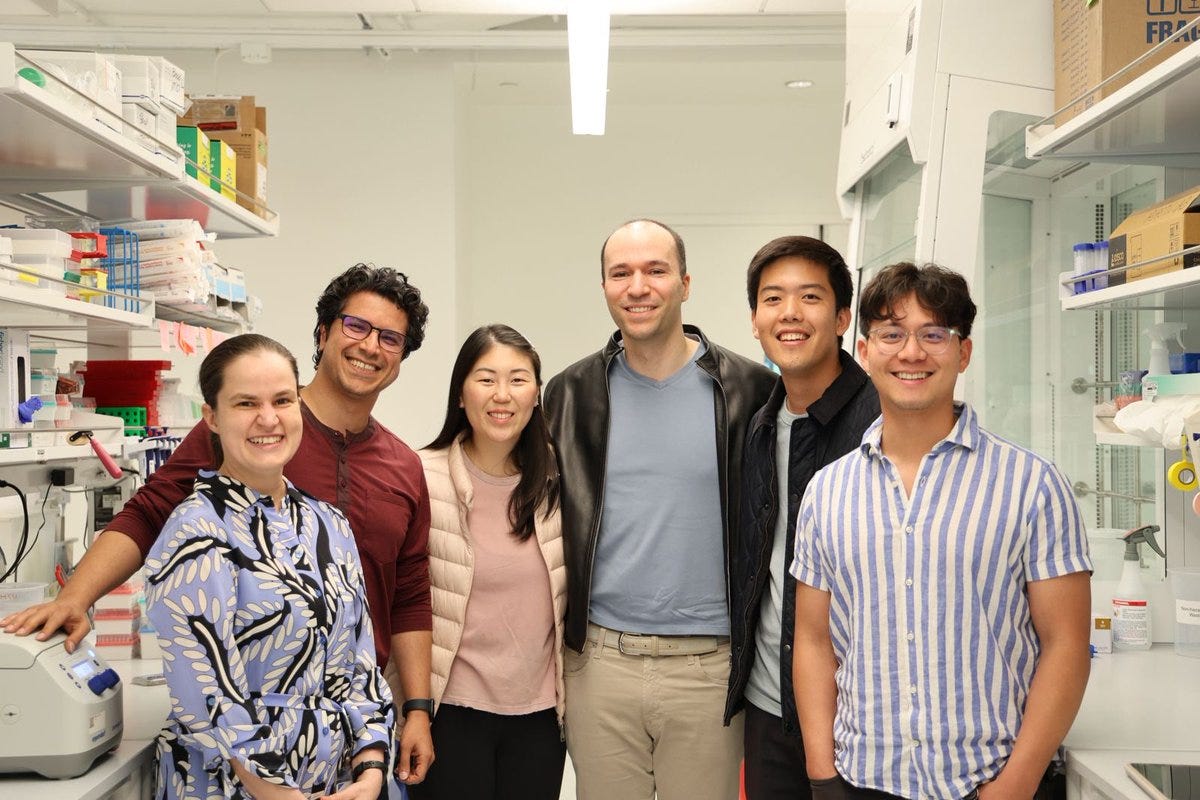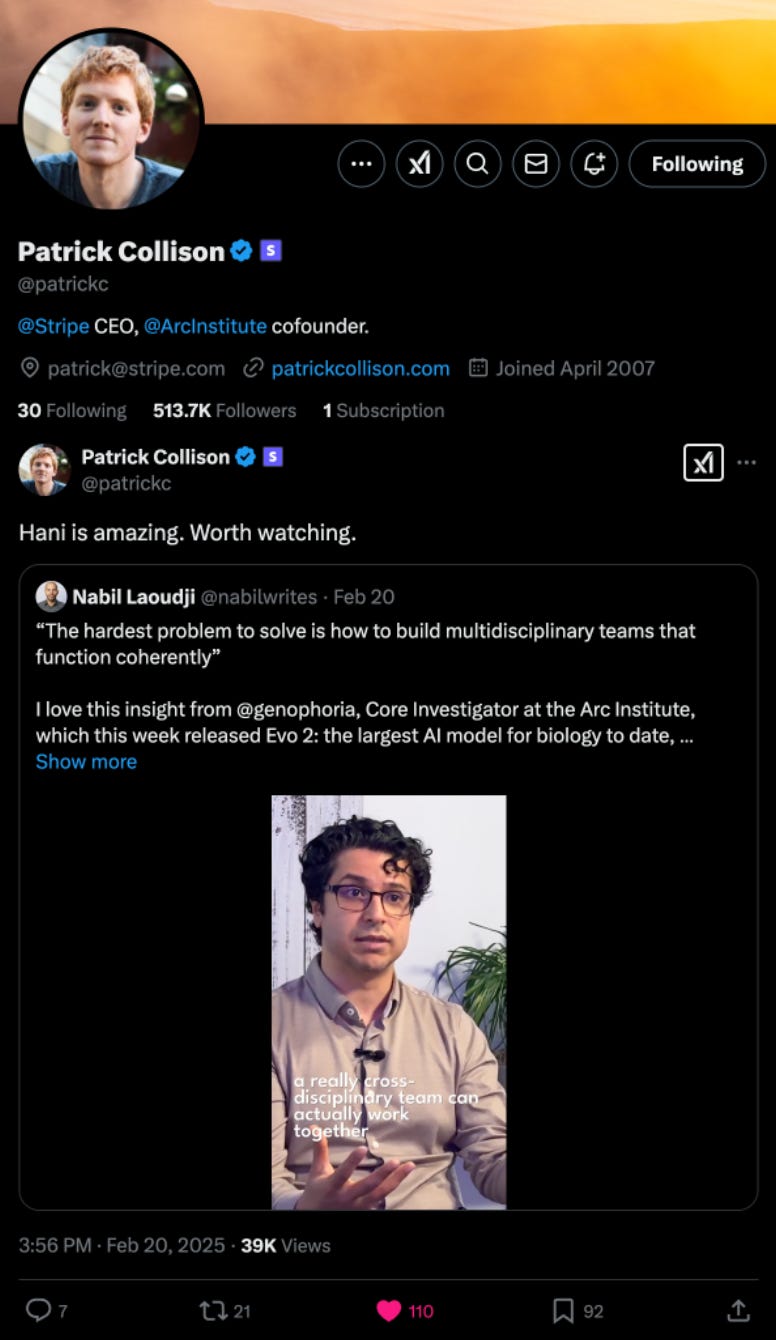Accelerating Cancer Research
A Conversation with Hani Goodarzi of Arc Institute, UCSF, Exai Bio, Vevo Therapeutics
Last week, the field of AI for life science hit a milestone with the release of Evo 2: the largest AI model for biology to date, trained on over 9 trillion DNA tokens from over 100,000 species. Evo2 is a generalist model that can, for example, predict whether a specific genetic mutation might cause a disease, such as cancer.
This model was developed through a partnership between NVIDIA and the Arc Institute - an innovative nonprofit research center.
As the Arc team was preparing for Evo 2’s release, I had the opportunity to sit down with Hani Goodarzi, a Core Investigator at the Arc Institute, quantitative and computational biologist, associate professor at UCSF, and co-founder of two startups, one of which – Exai Bio – is focused on the early detection of cancer.
A fun anecdote: when OpenAI co-founder Greg Brockman took a sabbatical last year, he spent part of that time collaborating with Hani and the Arc team to help them overcome the engineering challenges that come with scaling a biology foundation model of this size.
In my podcast interview with Hani we explored:
The Emerging Promise of Biology Foundation Models Such as Evo 2
Hani's Experience Partnering with NVIDIA and Greg Brockman of OpenAI
Building Multidisciplinary Teams to Tackle Grand Challenges In Life Science
The Science Behind The Early Cancer Detection Platform Developed by Exai Bio
How Startups Help Bridge the Gap Between Academia and Industry Scale
Watch or Listen Now
If you're interested to get a peek into the hopeful future of early cancer detection and treatment through the use of powerful AI models, join us for this conversation:
Also available on:
Spotify:
Apple Podcasts: https://apple.co/40sQCu9
Episode Buzz
We were happy to see Patrick Collison, co-founder of Stripe and the Arc Institute, re-share our episode with Hani:
More community reactions:
Show Notes
Episode Links:
Arc Institute https://arcinstitute.org/
Goodarzi Lab https://arcinstitute.org/labs/goodarzilab
Exai Bio https://www.exai.bio/
Vevo Therapeutics https://www.vevo.ai/
UCSF Cancer Center https://cancer.ucsf.edu/people/goodarzi.hani
Hani's LinkedIn https://www.linkedin.com/in/hgoodarzi/
Greg Brockman's Post https://x.com/gdb/status/1864052838256808339?lang=en
NCI Cancer Stats https://www.cancer.gov/about-cancer/understanding/statistics
Chapters:
00:00 - Teaser
02:12 - Episode Introduction & Preview
07:35 - Hani’s Path Into Quantitative and Computational Biology
11:55 - The Emerging Promise of Foundation Models Such as Evo 2
15:53 - Dry Side vs. Wet Side of Biology
22:23 - Pivoting Into AI for Life Science From Unrelated Domains, and the Importance of Culture in Cross-Functional Teams
27:28 - How to Develop Multidisciplinary Teams: Brutal Honesty
30:07 - How Arc Institute’s Org and Funding Structure Enables Innovative Science
36:24 - How Tech Founders Are Pushing Biotech Innovation
39:07 - Hani’s Collaboration with NVIDIA and Greg Brockman of OpenAI
43:57 - The Science Behind Exai’s Early Cancer Detection Platform
52:05 - DNA Methylation to Improve Cancer-Specific Signals From Blood
55:25 - UCSF’s Application of This Technology for Breast Cancer Detection
58:34 - How Startups Help Bridge the Science “Valley of Death”
01:04:24 - Supporting Hani’s Work Through Scientific Contributions, Evangelism, and Applying the Scientific Method Across Disciplines








